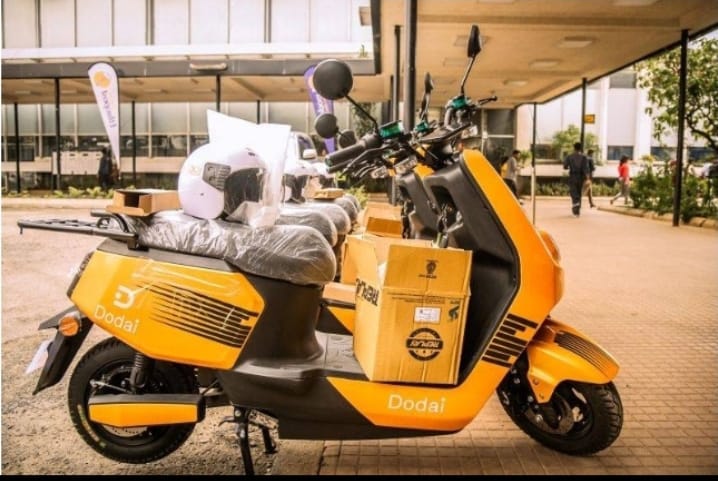Japanese investor Yuma Sasaki, CEO of Dodai, is betting on electric mobility to transform Africa’s transport and industrial sectors. In Ethiopia, where population growth, fuel costs, and urbanisation are rapidly reshaping mobility needs, Dodai is assembling affordable electric motorcycles that are tailored to local realities.
Yuma Sasaki shared his belief that “Africa’s EV story must be written from within the continent, by building local capacity, supporting clean energy transitions, and empowering riders and mechanics alike”.

Dodai’s electric motorcycles are built for resilience, engineered to handle Ethiopia’s terrain, carry passengers or cargo, and keep operating with minimal maintenance. But Dodai is not just delivering vehicles; it’s nurturing a broader ecosystem. From local assembly lines to battery swapping stations, the company is embedding value into Ethiopia’s economy at every stage.
Each unit retails for approximately 15,000 Ethiopian Birr (USD 250–300), affordable enough for gig workers, boda boda operators, and small-scale delivery enterprises. That pricing is strategic. It lowers the barrier to clean transport adoption in a market that traditionally depends on second-hand petrol bikes imported from abroad.

Collaboration has been a cornerstone of Dodai’s success. Sasaki works closely with Hilina Legesse, President of the Addis Ababa E‑mobility Association (EMoA), who is also a leading mobility advocate, to ensure the company’s operations align with national development goals and policy frameworks. This kind of local partnership ensures smoother regulatory compliance and stronger community buy-in, both vital in an emerging market.
Africa’s abundant reserves of cobalt, lithium, and other critical minerals have long fed EV production abroad. Dodai’s approach is turning that model around by retaining value at home, creating jobs, and fostering industrial skills in Africa’s youth. It’s a quiet industrial revolution rooted in sustainability, not just extraction.
Yet the road to scale isn’t without obstacles. Inconsistent electricity supply, weak logistics networks, and a lack of formal EV regulation all present real challenges. But Dodai’s battery-swapping model, where riders can quickly exchange batteries rather than wait hours to recharge, is one of many adaptive strategies being piloted. It’s a solution shaped not in a lab, but in dialogue with the streets.
Dodai’s story speaks to a deeper narrative: that Africa’s next phase of growth may very well be electric, decentralised, and driven by entrepreneurs who see possibility where others see difficulty. What began as a vision by a Japanese investor is now a shared mission with Ethiopian stakeholders, one electric ride at a time.
